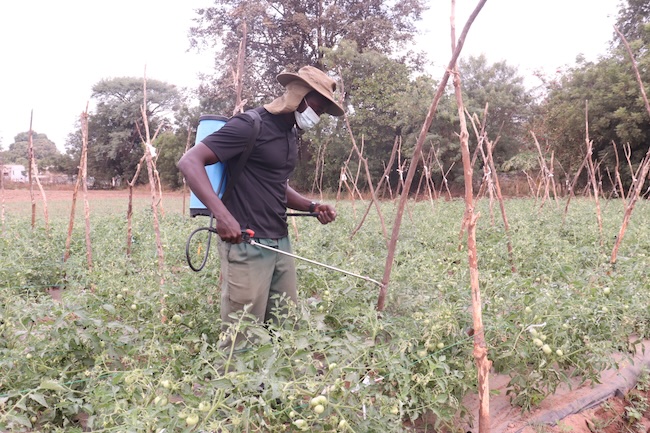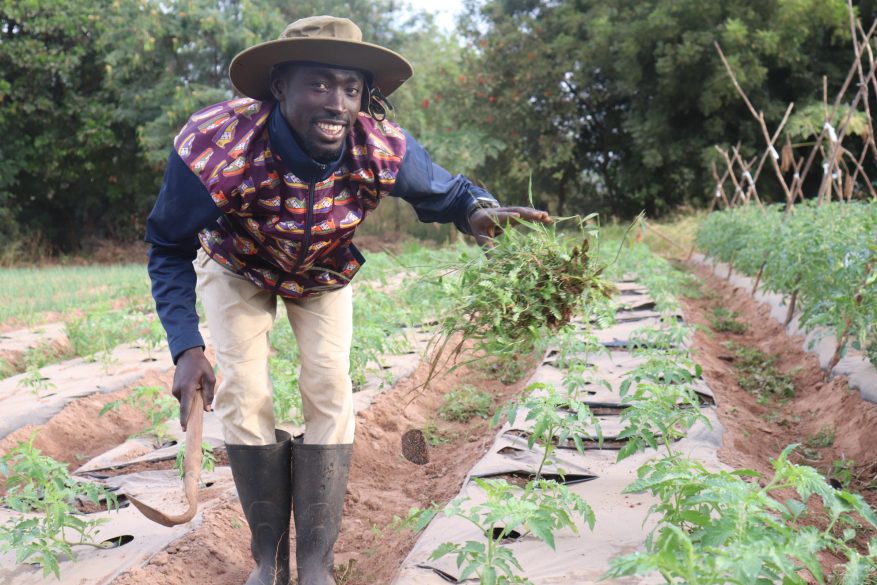A Self Help Africa ‘demonstration farm’ is helping the next generation of farmers in The Gambia successfully grow more organic fruit and vegetables to eat and sell.
Traditionally, The Gambia has relied heavily on imported fruit and vegetables to stock markets and dinner plates – limiting farmers’ earning potential and costing families more. But, Self Help Africa’s demonstration farm – managed by Ousman Manneh and his small team of agricultural experts – has been showcasing climate-smart and chemical-free growing practices to local communities, farmers and even school pupils.
Despite climate-related weather changes, Ousman and his team are successfully growing papayas, bananas, pineapples, strawberries, ginger and garlic. A natural pesticide mixed on site allows crops to grow chemical-free and a focus on recycling ‘waste’ includes using discarded plastic as mulch and tyres as planting beds.
“This demonstration farm is a place where people can come and learn,” Ousman said. “We bring students, farmers, even civil servants to show them what they believe cannot be grown in The Gambia, can be grown here. Seeing is believing.”
The demonstration farm has also successfully grown onions during the rainy season, which farmers didn’t do previously. The women-led co-operative farms we support across The Gambia are now growing them year-round, with great results.

Sheikh Tijan Jallow, coordinator of the Transforming Access to Markets project and a farmer himself, said: “We try to show people that within farming you can have a stable source of livelihood. The poverty level here [is rising], it’s difficult to cope, but we have to bear with it because if we don’t feed the nation, nobody will do it for us. We have to take up the opportunity, the challenge, and know that we must grow what we eat and eat what we grow in our country.”
You can support farmers like Ousman and Sheikh Tijan with a brighter future by donating here.

